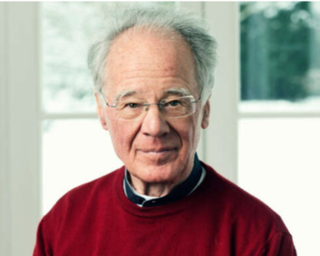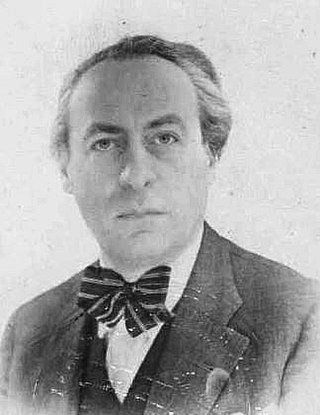
The Staatskapelle Berlin is a German orchestra and the resident orchestra of the Berlin State Opera, Unter den Linden. The orchestra is one of the oldest in the world. Until the fall of the German Empire in 1918 the orchestra's name was Königliche Kapelle, i.e., Royal Orchestra.

Hermann Paul Maximilian Abendroth was a German conductor.

Christian Thielemann is a German conductor. He is currently chief conductor of the Staatskapelle Dresden, and the designated Generalmusikdirektor of the Berlin State Opera.
Günther Herbig is a German conductor.
The Staatskapelle Halle is a German symphony orchestra based in Halle, Saxony-Anhalt, Germany. Part of the umbrella organisation Theater, Oper und Orchester GmbH Halle, the orchestra performs symphonic concerts, and also serves as the orchestra for the Oper Halle.
The Badische Staatskapelle is a symphony orchestra based in Karlsruhe. The orchestra is affiliated with the Badisches Staatstheater. The historical roots of the orchestra date back to 1662. The precursor ensemble was the Hofkapelle der Markgrafen von Baden-Durlach. Early leaders of the orchestra included Giuseppe Beniventi (1712–1718), Casimir Schweizelsberger, Johann Philipp Käfer, and Johann Melchior Molter, who led the orchestra for 40 years.

George Alexander Albrecht was a German conductor and composer, who also worked as a musicologist and academic teacher. A prolific composer at a young age, he was Generalmusikdirektor (GMD) of the Staatsoper Hannover from 1965 for 30 years, where he led not only the major operas by Mozart and stageworks by Wagner, but contemporary composers, such as Aribert Reimann's Troades in 1987. He was GMD of the Nationaltheater Weimar from 1996, and taught at the Hochschule für Musik Franz Liszt, Weimar. Albrecht promoted the works of neglected composers such as Wilhelm Furtwängler, Hans Pfitzner, and Erwin Schulhoff.

Kirill Karabits is a Ukrainian conductor, active in both concert hall and opera house, whose discography mainly includes recordings of Ukrainian, Russian, and other Eastern European music.
Stefan Solyom is a Swedish conductor and composer. He is the nephew of the Swedish-Hungarian pianist János Solyom.
Cornelius Meister (born 23 February 1980 in Hannover, is a German conductor and pianist.
Hans Wallat was a German conductor, GMD in Bremen, at the Nationaltheater Mannheim, Theater Dortmund and Deutsche Oper am Rhein. A specialist for the stage works of Richard Wagner, he appeared at the Bayreuth Festival and internationally.

Marcus Bosch is a German conductor. He was Generalmusikdirektor (GMD) in Aachen, held the position at the Staatstheater Nürnberg from 2011, and with the Norddeutsche Philharmonie Rostock from 2020. He is the artistic director of an opera festival in his home town. Conducting internationally, he was appointed professor at the Musikhochschule München in 2016. He was acclaimed for his recording of Bruckner's complete symphonies, among others.
Peter Ludwig Gülke is a German conductor and musicologist.
The German word Theaterplatz may refer to:
Anton Marik is an Austrian conductor who made a career with orchestras and choirs in Germany.
Gerhard Friedrich Wilhelm Pflüger was a German conductor.

Eugen Szenkar was a Hungarian-born German-Brazilian conductor who made an international career in Austria, Germany, Russia, and Brazil. He promoted the stage works of Bela Bartók and other contemporary music at the Oper Frankfurt, the Cologne Opera, where he conducted the world premiere of The Miraculous Mandarin, and in Berlin. He conducted all of the symphonies by Gustav Mahler.

Philharmonisches Orchester Freiburg is the symphony orchestra of Freiburg im Breisgau, Germany, founded in 1887. It plays concerts in the Konzerthaus Freiburg and opera in the Theater Freiburg.

The Norddeutsche Philharmonie Rostock, based in Rostock, Mecklenburg-Vorpommern, Germany, is the state's largest symphony orchestra and also the orchestra of the Volkstheater Rostock. Founded in 1897, the orchestra grew to 90 musicians by 1991. They were rewarded a prize for ambitious programs in 1993.
Markus Lukas Frank is a German horn player and conductor.










